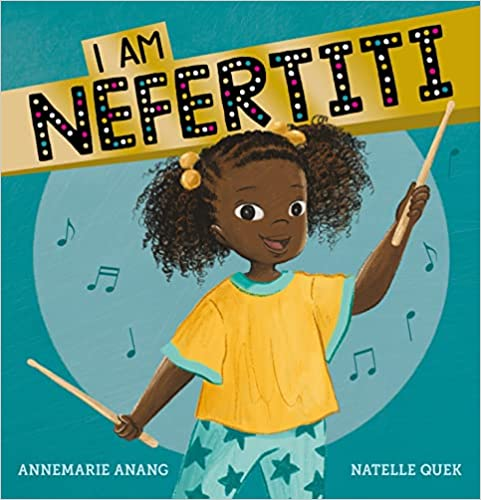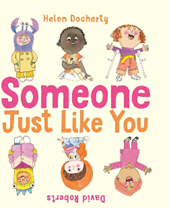I am Nefertiti by AnneMarie Anang and Natelle Quek
I am Nefertiti by AnneMarie Anang and Natelle Quek lesson plan by Andrew Moffat www.no-outsiders.com |
Learning questions: Why are names important? |
RSE links: (Respectful Relationships) -The importance of respecting others even when they are very different from them (for example, physically, in character, personality or backgrounds), or make different choices or have different preferences or beliefs. -Practical steps they can take in a range of different contexts to improve or support respectful relationships. -The conventions of courtesy and manners -The importance of self respect and how this links to their own happiness. -That in school and wider society they can expect to be treated with respect by others, and that in turn they should show due respect to others, including those in positions of authority. |
Success criteria: I can recognise respectful behaviour and behaviour that is not respectful. I know why correct pronunciation of names is important |
Starter: Watch the video in the link above (make sure you use the female teacher in the first link "Solomon, Reagan, Hunter" not the second clip with the male teacher which has unsuitable language for school). It shows a teacher deliberately mispronouncing students' names during the register. The video went viral because people found it funny to watch. Her pronunciations do sound funny.... but is there another side to this video that is not funny? Discuss why do you think she did this? What is she actually showing the class, (and us)? Are names important? |
Main: Read "I am Nefertiti". When you get to the part when Nefertiti tells Pipa what Miss Potts needs to do, ask the class what they think she says. After the story, discuss: - Why did Miss Potts choose to call Nefertiti "Nef"? Is that ok? Surely it's just being friendly? Explain your answer. - "Nefertiti's skin tightened up and her body seemed to shrink, just a little." Why is this happening ? - Look at the page where Nefertiti shrinks. Did Nefertiti really shrink to the size of your thumb? What's happening here? - Why is the band higgledy-piggledy? What do they need? - When Mrs Potts first says "Nefertiti", why is she nervous? - "Say it like you mean it!" why is this important? - Did Miss Potts need to apologise? Explain your answer. |
Role play: The key moment in the story is where the whole group chant Nefertiti's name "Ne-fer-ti-ti! Ne-fer-ti-ti!" and Nefertiti grows little by little until she is back to her normal size. How did Nefertiti feel when children chanted her name? Could we do that for all the names in our class? What is the aim of this exercise? (We want everyone to know they belong.) Sit in a circle so that everyone can see each other (if you're in a classroom you can still do this with everyone sitting or standing at their desks). Start a clap rhythm two slaps on the legs and two claps, then chant "Ne-fer-ti-ti" over the rhythm till everyone joins in. Now choose one child to start off our chants. The child chants their own name and children listen then join in. Each name is chanted two or three times by the class and then the next child starts a new chant using their own name and the class joins in. Continue around the class till every child has heard their name chanted. |
Activity: Look how the author spells out Nefertiti's name in the story "Ne-fer-ti-ti" to help the teacher remember how to say it. Children write out all the names in their class as we chanted them; "E-mi-ly", "A-de-l", "Ra-mi", "O-li-via", "Bro-gan" etc This could be made in to a colourful advert for the class - 'we use our names in here'. |
Plenary: This has been a fun lesson, I saw lots of children grinning when their name was chanted; how did hearing your name chanted make you feel? How do you think it would feel if your name was often mis-pronounced, does it matter? In Nazi Germany when people were in concentration camps, names were never used to address prisoners; why not? What was used instead if names? (numbers tattooed on your arm); what was the desired effect? What can we learn from this story and from the video of the teacher in the lesson starter? How is this about respect? If you are not sure how to pronounce someone's name, what can you do? Why is this about No Outsiders? |




Comments
Post a Comment